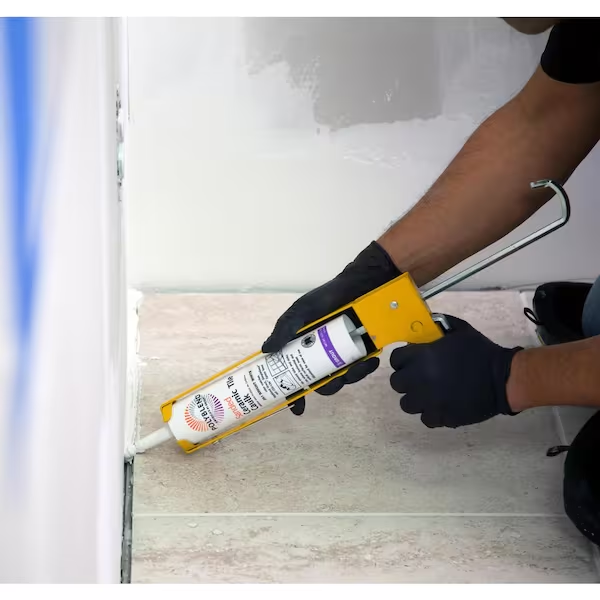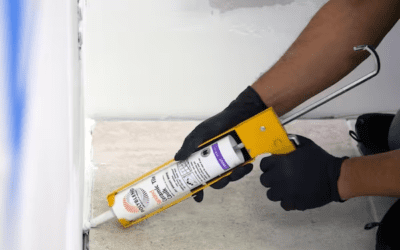Construction Delays! They always make homeowners feel anxious and upset. If you have ever been through a renovation project, you know that delays are possible and probable. Is it the contractor’s fault? Maybe, but not necessarily. Let’s clarify this for you with a simple example.
Imagine you are heading to catch a flight for an important business trip, and everything is meticulously planned. You will arrive at the airport well in advance according to your estimates. Suddenly, you receive a notification that your flight is delayed due to unforeseen technical issues with the airplane. Now, you find yourself stranded at the airport, making calls to reschedule meetings and rearrange your plans. Was this your fault? Not at all. These things happen, and you can’t always prevent them. Philadelphia renovation projects are not exempt; believe it or not, numerous factors can cause construction delays.
So, if you are about to renovate your home, take advantage of this article. In the following sections, we will explore the 10 most common reasons that cause construction delays. Let’s get started!
1. Weather Conditions
Weather can be the first and potentially the most challenging obstacle. Mother Nature can be a significant disruptor. Rain, snow, extreme heat, or strong winds can halt progress, and crews must wait for more favorable weather conditions. Consider the scenario of an unpredictable snowfall when you are repairing a roof.
What are the consequences?
- Road closures may cause material delivery delays.
- Outdoor projects may be canceled.
- Unsafe working conditions.
- Damage to materials stored outdoors.
In our example, the roof repair may need to be postponed until a later date when the snow has stopped and the roof is clear of snow and ice.
You may wonder if renovation contractors take weather forecasts into account when planning renovations. The answer is yes, we do, but you can only predict weather for up to 10 days, and construction projects often require a minimum of three months to complete. So, weather issues can easily disrupt the renovation process and cause construction delays.
2. Subcontractors Leaving the Job
If you are reading this article as a general contractor, you have undoubtedly experienced this and are familiar with this challenge. All contractors should implement a strict filtering process for the subcontractors they choose to work with. Suppose subcontractors cannot do their work when scheduled due to unavailable utilities, furniture obstructing the work area, or delayed payments. In these cases, it can cause a subcontractor to move on to their next job.
However, even the best subcontractors may leave a job for one that is more profitable. Some subcontractors may renegotiate the price midway through the job, making it impossible to continue working with them. If a subcontractor falls behind or unexpectedly leaves, finding a replacement and bringing them up to speed can result in significant delays. It’s a bitter reality that all general contractors know, and homeowners must also understand this to navigate Philadelphia renovations more effectively. However, it’s important to note that this is a relatively small possibility and may never happen in your case. We are just discussing probabilities.
3. Supply Chain Issues
Picture this: you’re renovating your dream home, the walls are down, and everything stops. Why? Materials critical to the next stage are nowhere to be found. This seemingly simple issue, “materials out of stock,” can disrupt carefully planned construction schedules, causing costly delays and headaches.
When one key material is missing, dependent tasks grind to a halt. Lumber is necessary for constructing walls, while tiles are essential for completing floors. These interconnected delays push back subsequent milestones and the overall completion date.
So, why not buy all the materials at the beginning of the job? The issue with having all the materials on the job site is that neighborhood thieves could break into the house and steal them. There’s also a chance of losing materials due to the constant movement of workers and cleanup crews. Also, homeowners might change their minds in the middle of the work and decide to use another roofing material, for example. Therefore, purchasing the materials right before installation is better to minimize the risk of theft or loss.
4. Unpredictable Issues with Your House
Repairs are more time-consuming and challenging than construction. In Philadelphia renovation projects, you may only discover what is happening behind a wall once you start tearing it down. Unforeseen issues with your existing home’s structure, plumbing, or electrical systems can necessitate unexpected repairs or adjustments, causing delays in the timeline.
Imagine you open up walls and face rotted joists, frayed electrical lines, or damaged drain lines. You have to replace them now since the walls are open. These all extend the project timeline and also add to the costs. These problems are why most change orders occur; therefore, after the demolition phase is the best time to realize most of your change orders and how much additional work it will take.
Experienced contractors can predict these issues and factor them into their timelines to minimize the likelihood of delays. However, another bitter fact is that an old building’s structure, plumbing, and electrical elements can always surprise you.
5. Design Changes
Design changes are a common challenge all contractors face: homeowners decide to change the design in the middle of the project. This decision can significantly alter the renovation timeline. As a homeowner, try to be reasonable. If you decide to change something midway through the project, don’t expect the renovation to proceed on schedule.
Besides, we may need to reconsider design decisions due to supply chain issues. For instance, if the flooring you initially selected is unavailable, you can opt for an alternative to avoid delays. However, if you wish to stick with your preferred flooring, you have to accept that it will take a while to become available, ultimately extending your project timeline.
While it might seem like a minor change to you, a considerable amount of planning is involved in making even a minor adjustment, such as changing the flooring material. This doesn’t mean homeowners can never make changes; instead, it emphasizes the importance of understanding and anticipating potential delays associated with those changes.
6. Equipment Malfunctions
Let’s get back to the airplane example. Did you anticipate a potential flight delay and factor that into your timing for arranging your business meetings? Nobody can do that! These are unpredictable problems, and equipment breakdowns in construction work is no different.
Equipment breakdowns or malfunctions have the potential to bring work to a standstill. The solution? Having reliable backups or maintenance schedules can minimize these disruptions. It’s important to note that this only partially solves the issue but helps to minimize it. Let me provide you with an example. A wet tile saw is a tool for cutting tiles accurately and quickly. If the wet saw malfunctions, we can substitute it with a handheld saw to prevent delays in work. Backup equipment prevents a complete halt in the work, but the process will undoubtedly be slower than expected.
7. Permit Paperwork
You know that Philadelphia renovation and construction projects require getting various permits from the city for different aspects of the work. The Department of Licenses and Inspections (L&I) issues these permits in Philadelphia. While this process may be straightforward for experienced contractors, in some cases, even the most seasoned professionals encounter challenges. Let me elaborate on how this can lead to delays.
Last year, we undertook a mixed-use property renovation project. The project involved creating an opening on the second floor to create a staircase. The city notified us of new permit regulations when we applied for the permit. Additional documentation was required since this project impacted the shared wall with the neighbor. You can find more information about this project here. To cut a long story short, due to the new rules established by the city, we had to perform extra work, resulting in construction delays. Can you see how a seemingly straightforward task can become complicated?
Also, even for architects, the permit process can be complicated. Codes can be subject to interpretation. The best architect will tell you that the specific details of the permit process will depend on the city’s plan examiner who reviews your plans.They interpret the code in a certain way, which means you have to do more work, spend more money, or go back to the architect to make changes to the design.
Additionally, Philadelphia has different types of permits, each with significant review times. Standard permits undergo a 30-day review and any changes the examiner requests will require an additional 30-day review. Ultimately, the process of obtaining permits can extend up to three months.
8. Poor Communication
Misunderstandings and poor communication frequently delay construction projects. This type of communication can occur when individuals engage with the wrong person or when messages are unclear. During different stages of a project, multiple parties become involved. Imagine a scenario where you are awaiting the signing of a document by the lender, consultant, or client, but they are not responding to phone calls and emails.
This simple problem significantly contributes to many construction delays, especially on 203(k) projects. In the context of the 203(k) program, paperwork communication is necessary for getting payments from the lender, as contractors do not receive upfront payments—delays in payment lead to delays in the progress of the work.
Responsibility and accessibility are two essential aspects that everyone involved should share. Shared responsibility helps everyone stay on the same page and work together smoothly. A project only runs well when everyone talks to each other clearly and often.
9. Safety Issues
Construction work can be dangerous! Many things can injure workers on a construction site, like falling, getting shocked, or using the wrong tools. If someone gets hurt, it can cost money, slow down the project, and make it harder for everyone to work together. Prioritizing safety measures is crucial to avoiding accidents, and that’s why all contractors must strongly emphasize safety!
10. Delayed Inspections and Approvals
In Philadelphia renovation and construction projects, obtaining approvals from various departments is necessary to proceed with the work. For instance, when installing gas lines in Philadelphia, inspections must be conducted by the Department of Licenses and Inspections (L&I) and Philadelphia Gas Works (PGW) to enable the use of gas in the building. Unforeseen delays during inspections or awaiting final approvals can push back the completion date.
Conclusion
To summarize, construction delays are unavoidable. If you are a contractor reading this article, try communicating this reality to your clients when presenting the project timeline. Emphasize that the provided timeline is an “estimate,” and there is a possibility it might vary slightly, as this is common in all projects.
On the other hand, if you are planning a Philadelphia renovation or construction project, this information equips you to understand construction delays better. Additionally, remember that the choice of contractor can significantly impact your project. Selecting the right contractor can greatly reduce the likelihood of construction delays.
For your home renovation in New Jersey or Philadelphia, trust Matrix Company Solutions Corp. We possess all the experience needed to make your home renovation project a smooth and hassle-free experience.









![How to Get a Philadelphia EZ Deck Permit [2024]](https://matrixgc.com/wp-content/uploads/2022/07/Elevated-Deck-in-Philadelphia-Matrix-Construction-400x250.jpg)

0 Comments